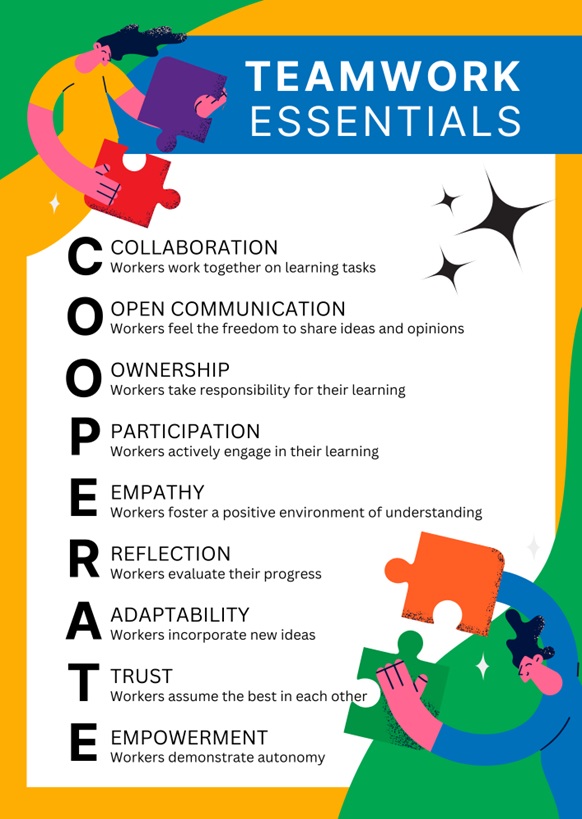10 Key Benefits of Employee Rewards and Their Impact on Engagement
Have you ever wondered how employee rewards might impact job satisfaction or motivation? Do you also not know what are the right rewards to be used to enhance engagement at work? Employee rewards go way beyond saying thank you or giving a gift.
It is very important for improving the general working environment and also for enhancing employee engagement. Let's explore the 10 key benefits of employee rewards and how they can make all the difference in motivating your team and boosting productivity.
Increases Motivation
One of the primary benefits of employee engagement rewards is that they increase motivation. Once employees know they are being rewarded for their work, they will want to go further and stretch themselves. Motivation helps employees feel valued, inspiring them to perform at their best and contribute more effectively to the organization.
With rewards in place, employees feel appreciated for their work, which motivates them to push harder. A simple bonus through employee engagement platforms gives a sense of purpose and inspires him to do his best. Rewards make employees feel valued, driving them to perform better.
Improves Job Satisfaction
Job satisfaction is one of the prime determinants of employee retention. The more engaged an employee feels with their job, the longer they are likely to stay with the company. Rewards are a way of creating this satisfaction because they give employees the feeling of being appreciated.
When their efforts are appreciated, then it gives a sense of accomplishment and appreciation. Whether it’s gift cards, additional time off, or team celebrations, these gestures make employees feel great about their contributions.
Boosts Healthy Competition
Employee rewards also encourage healthy competition. Employees become more concerned about exceeding their targets as the set targets are usually based on clear achievements or set goals when the rewards are associated.
Such competitiveness, though unappealing at the initial perception, is helpful to most companies as employees keep rising and striving for more. They end up working harder for the ultimate production of a more efficacious result, a more motivated workforce.
Enhances Team Collaboration

Rewards are not necessarily individualistic. Giving teams rewards for group efforts may reinforce the sense of unity and cooperation. When teams are recognized for their collective achievements, they work together more effectively.
This teamwork sense promotes a good company culture where the employees help each other to achieve success as a group. Collective rewards help employees understand that a team's success is equal to the accomplishment of individual employees.
Reduces Turnover Rate
The turnover rate among employees is an issue with many companies. Hiring and training a new employee requires much time as well as cost. Rewards are a major tool used to ensure the satisfaction of employees that can minimize turnover.
Employees are more likely to leave if they feel their hard work isn’t recognized or rewarded. Hence rewards create a positive atmosphere within a workplace, and thereby create more loyal employees. By getting fewer people to leave their jobs, the organization earns a more experienced and stabilized workforce.
Improves Quality of Product
Employees who get awarded for their work will improve the quality of work rather than just completing it. Rewards create an incentive to not only meet expectations but to exceed them. The desire to receive recognition pushes employees to take extra care in their work and pay attention to the details.
Over time, this leads to an overall improvement in the quality of the company's products or services. When they are motivated, then the output will be of quality, and this will directly impact the success of the organization.
Creates Healthy Relationships
The award of incentives can also facilitate the employee-supervisor relationship. The incentive makes the employees feel that their efforts are valued. This increases trust and respect between the employees and the supervisor.
Better relationships lead to effective communication and teamwork in an organization. Loyal employees who get proper support from the managers tend to work with maximum performance for the organization.
Encourages Innovation and Creativity
Employee rewards are not only about work and performance but also about innovation and creativity. People are more likely to be creative if they know that any new ideas or solutions they come up with will be recognized and rewarded.
That kind of atmosphere encourages creativity, which is one of the most potent factors for a company's growth. Today's market needs to be innovative, and rewarding employees for their creativity helps companies be ahead in the game.
Increases Employee Engagement
Employee engagement refers to the degree of interest and participation of an employee towards their job. An engaged employee is productive, less likely to leave the organization, and willing to go above and beyond the call of duty. Of the most potent drivers of engagement, the power of recognition ranks near the top.
When employees are compensated for their work, it empowers them with a sense of purpose and inspires them to take ownership of their jobs. The more engaged the employees are, the better they will contribute to the attainment of the company's goals and objectives.
Promotes Company Culture
Finally, employee rewards play a great role in supporting and building company culture. A company that puts value on and rewards its employees will provide a productive working environment. This positive culture is contagious and makes employees imbibe the same values.
When a company shows genuine concern for its employees, it encourages a culture of respect, responsibility, and commitment to work. Over time, this creates a company culture that drives long-term success and mutual respect between employees and employers.
Conclusion
Reward programs for employees are much, much more than just a good gesture to an employee thanking them for their hard work. They're proven to be profound and durable results in terms of motivation and engagement, as well as across the overall culture of the workplace.
Rewards that are valid and relevant will increase an employee's satisfaction, lessen turnover, and encourage teamwork and innovation in the workplace and organizations. And the advantages employees become more engaged and productive with rewards. The most effective strategies that the companies use in fostering a positive and thriving workplace are rewards that the companies make in terms of investments toward employee recognition.
FAQs
- Why are employee rewards important for motivation?
Employee rewards show recognition for hard work, which boosts motivation. When employees feel valued, they are more likely to go the extra mile, contributing to higher productivity and better performance.
- How do employee rewards improve job satisfaction?
Rewards make employees feel appreciated, which leads to increased job satisfaction. When employees are recognized for their contributions, they feel more connected to their roles and are more likely to stay with the company.
- Can rewards help reduce employee turnover?
Yes, rewards help reduce turnover by keeping employees happy and engaged. When employees feel valued through recognition and rewards, they are less likely to leave for other opportunities, reducing hiring costs for the company.

